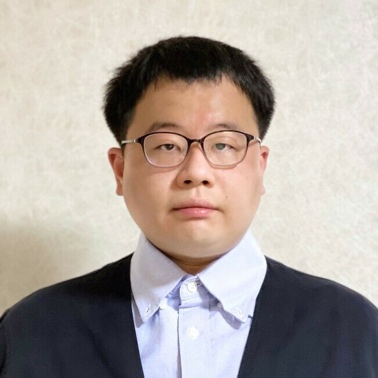
搜索网站、位置和人员

新闻与活动 活动信息
交叉科学中心系列讲座 CIS Lecture Series | AlphaFold 2 Meets Physics: A Novel Approach to Deciphering Protein Dynamics and Evolution
时间
2024年4月22日(周一)
14:00-15:00
地点
西湖大学云谷校区学术环E10-205
主持
西湖大学交叉科学中心 讲席教授汤雷翰
受众
全体师生
分类
学术与研究
交叉科学中心系列讲座 CIS Lecture Series | AlphaFold 2 Meets Physics: A Novel Approach to Deciphering Protein Dynamics and Evolution
时间:2024年4月22日(周一) 14:00-15:00
Time:14:00-15:00, Monday, April 22nd, 2024
主持人: 西湖大学交叉科学中心 讲席教授汤雷翰
Host: Dr. Leihan Tang, Chair Professor, the Center for Interdisciplinary Studies
地址:西湖大学云谷校区学术环E10-205
Venue: E10-205, Yungu Campus, Westlake University

Prof. Qian-Yuan Tang 唐乾元
Assistant Professor of Hong Kong Baptist University
主讲人/Speaker:
Dr. Qian-Yuan Tang is currently an Assistant Professor in the Department of Physics at Hong Kong Baptist University. He received his B.Sc. and Ph.D. degrees from Nanjing University, China. Prior to his current position, he conducted postdoctoral research at the University of Tokyo, Japan, and then worked as a research scientist at the RIKEN Center for Brain Sciences in Wako, Japan. Dr. Tang's research focuses on applying computational and data-driven approaches to understand complex biological systems, using a blend of computational, statistical, and physical tools to analyze biological data and reveal underlying patterns and principles.
讲座摘要/Abstract:
AlphaFold 2 (AF2), an AI tool developed by DeepMind, has significantly advanced structural biology by accurately predicting protein structures from amino acid sequences. This capability has established AF2 as a vital resource in molecular biology. In this talk, I will present our three recent studies utilizing AF2 and its predicted structures. First, we conduct statistical analysis based on AlphaFold-predicted structures, revealing that proteins in more complex organisms have larger radii of gyration, higher coil fractions, and slower vibrations. Through normal mode and scaling analyses, we show a correlation between organismal complexity and lower fractal dimensions in protein structures and dynamics, indicating a link between functional specialization and organismal complexity. Second, we examine AF2's ability to produce the Predicted Aligned Error (PAE), which estimates the uncertainty in predicting distances between amino acid residues. Investigating a database of protein structural changes upon ligand binding, we find that regions with high PAE are more susceptible to conformational changes and significantly influence the protein energy landscape's curvature. Third, we introduce a novel methodology that integrates physical energy landscape information with deep learning to generate the allosteric motions of proteins. We demonstrate that local energetic frustration—a measure of the energy landscape's local features—affects protein allosteric dynamics and can guide AF2 in predicting conformational motions. Overall, this research highlights the potential of AF2 to provide new insights into protein structural dynamics and evolution and potentially contribute to a deeper understanding of biological mechanisms at the molecular level.
讲座联系人/Contact:
理学院,徐恺吟,邮箱:xukaiyin@westlake.edu.cn
School of Science, Kaiyin Xu, Email: xukaiyin@westlake.edu.cn

















